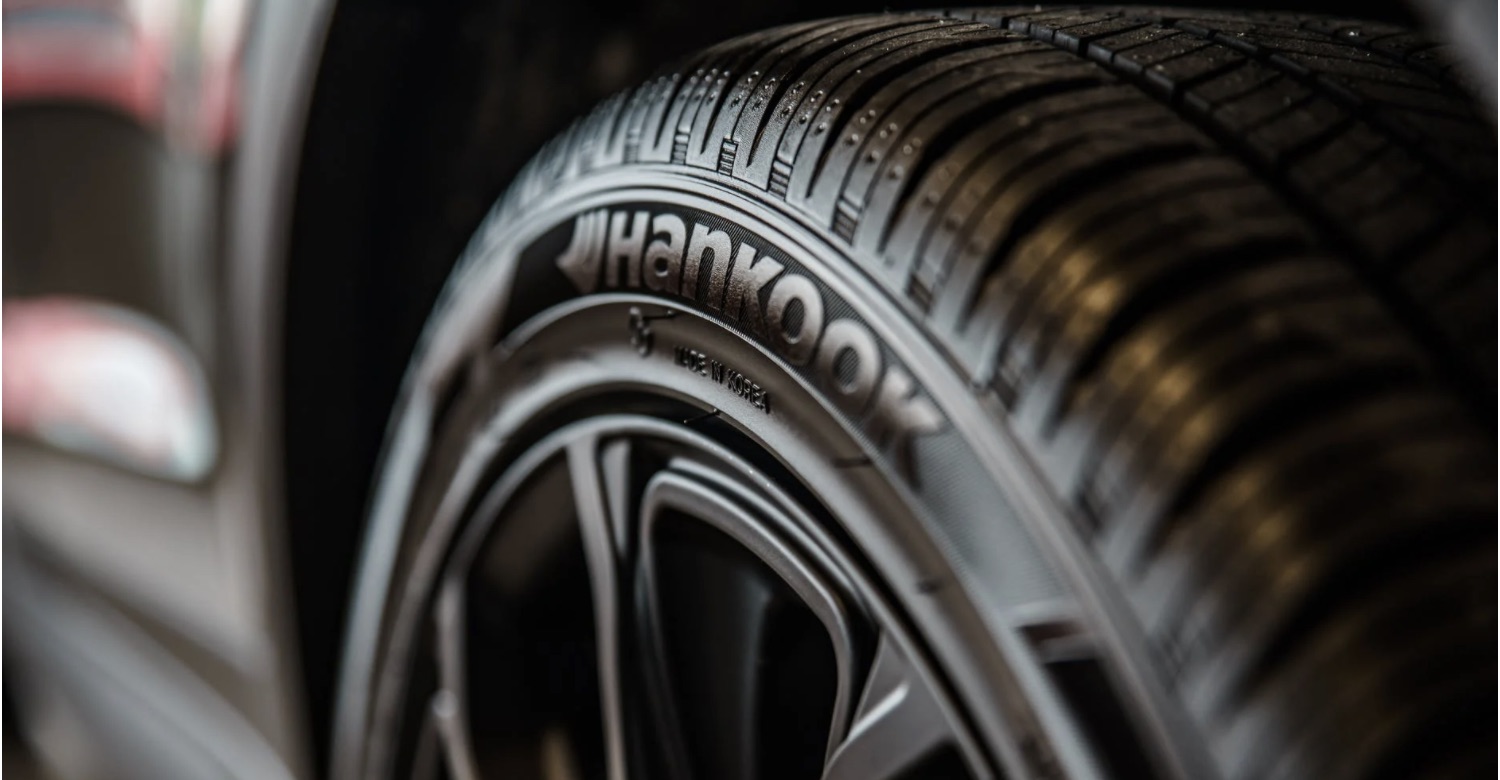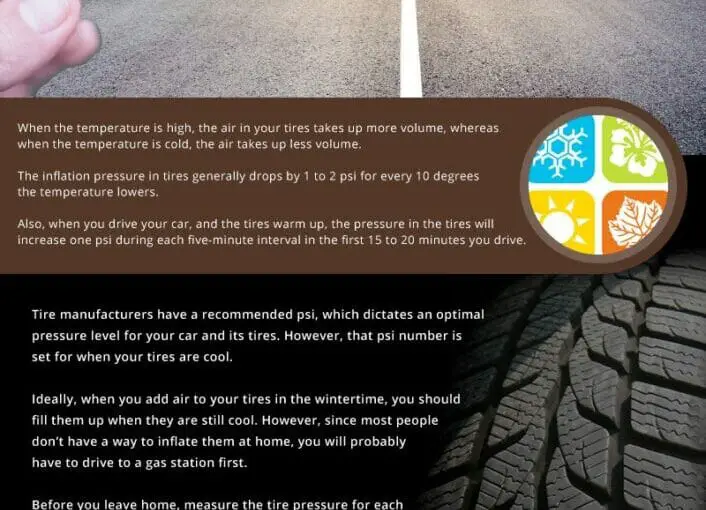How Much Do Tires Heat Up When Driving
Tires are one of the most important parts of a car, and they can get very hot when driving. The heat from the tires can cause problems with the car’s handling and can make the tires wear out faster. It is important to know how much heat your tires can take before they start to have problems.
If you’ve ever wondered how much your tires heat up when driving, the answer may surprise you. Tires can get incredibly hot, even when driving on a cool day. In fact, they can get so hot that they can cause fires if they’re not properly taken care of.
Tires are made of rubber and other materials that are great at insulating heat. That means that they can hold onto heat very well, which is why they can get so hot when driving. The hotter the day is, the hotter your tires will get.
And if you’re driving on a particularly hot road, like an asphalt highway in the summertime, your tires could reach temperatures of over 200 degrees Fahrenheit!Of course, this doesn’t mean that you should never drive on hot days or roads. Just be sure to take proper care of your tires by checking their pressure regularly and keeping them clean and free of debris.
If you do end up with a tire fire, make sure to extinguish it quickly and safely to avoid any damage or injury.
2 Minute Warning — Tire Heat
How Much Does Tire Pressure Increase When Driving
When you drive, your tires’ air pressure increases. This is due to the fact that the heat generated by the friction between the road and your tires causes the air inside the tires to expand. As a result, your tires’ air pressure will increase as you drive.
If you’re worried about your tires’ air pressure increasing while you’re driving, there are a few things you can do to mitigate this. First, make sure that your tires are properly inflated before you start driving. Second, avoid driving in hot weather conditions if possible.
And finally, keep an eye on your tire pressure gauge while you’re driving and stop if you notice that it’s getting too high.
When Car Tires are on Hot Pavement for Too Long, the Pressure Inside Will
If you’ve ever walked across a parking lot on a hot day, you know that the pavement can get pretty toasty. And if you’ve ever accidentally left your car parked on hot pavement for too long, you know that it can cause some serious damage to your tires.When the temperature outside is high, the pavement can reach temperatures of 140 degrees Fahrenheit or more.
And when tire pressure gets too high, it can cause the treads on your tires to separate from the tire’s casing. This can lead to blowouts and other serious accidents.So what should you do if you find yourself in this situation?
The best thing to do is to move your car to a shady spot and let the tires cool down gradually. You can also try spraying them down with a garden hose or using a tire cooler device. But whatever you do, don’t try driving on hot pavement with overheated tires – it’s just not worth the risk!
What Causes Tires to Heat Up
Most people don’t realize that there are many things that can cause their tires to heat up. Here are some of the most common causes:1. Driving too fast – When you drive too fast, your tires can start to spin which creates friction and in turn, heat.
2. Incorrect tire pressure – If your tires are not inflated properly, they will also create more friction than necessary and cause them to heat up.3. Overloading your vehicle – If you have too much weight in your car or truck, it puts extra strain on the tires which can again create friction and heat.4. Worn out brake pads – Your brakes are responsible for slowing down your vehicle and if they are not in good condition, they can cause your tires to overheat from all the extra effort required to stop the car or truck.
5. Hot weather – Believe it or not, hot weather can actually be a contributing factor to tire overheating as well. The hotter it is outside, the more difficult it becomes for your tires to dissipate the heat they are generating while driving on the road.
Best Tire Pressure for Highway Driving
Tire pressure is one of the most important factors in maintaining optimal vehicle performance. The correct tire pressure for your vehicle depends on a variety of factors, including the type of vehicle, the weight of the load, and the conditions of the roads.The best tire pressure for highway driving is typically between 30 and 35 psi.
This range provides the best combination of traction, handling, and fuel economy. For vehicles that are carrying heavy loads or travelling at high speeds, a higher tire pressure may be necessary. Always consult your owner’s manual or a professional mechanic to determine the best tire pressure for your specific vehicle.

Credit: www.windsornissan.com
How Much Psi Do Tires Increase When Hot?
When the temperature outside increases, so does the pressure inside your tires. As a result, your tires can become significantly inflated when hot. The amount of PSI increase will depend on how hot it is outside and how long your tires have been in the sun.
However, you can generally expect an increase of around 3-5 PSI when the temperature gets hot.
Why Do Tires Get Hot When the Car is Driven?
When a car is driven, the tires rotate and create friction. This friction produces heat, which causes the tires to get hot. The hotter the tires get, the more likely they are to fail.
That’s why it’s important to keep an eye on your tires when you’re driving and to pull over if you see smoke or smell burning rubber.
How Long Does It Take for Tires to Get Warm?
It takes tires longer to get warm in cooler weather. In general, it takes about 20 minutes for passenger car tires to reach their optimum operating temperature on a cool day. This is why many drivers like to do some “burnouts” or “donuts” in an empty parking lot when they first get their car out on a cold morning – to help heat up the tires so they can get better traction when they hit the road.
Conclusion
Tires can heat up when driving and this can cause problems. If the tires get too hot, they can become brittle and could even burst. This is why it’s important to keep an eye on the temperature of your tires when driving.
There are a few things you can do to help keep your tires from getting too hot. One is to make sure you have proper tire inflation. Another is to avoid overloading your vehicle.
You should also try to drive at moderate speeds and avoid sudden stops or starts. If you do find yourself in a situation where your tires are getting too hot, pull over and let them cool down before continuing on your journey.


